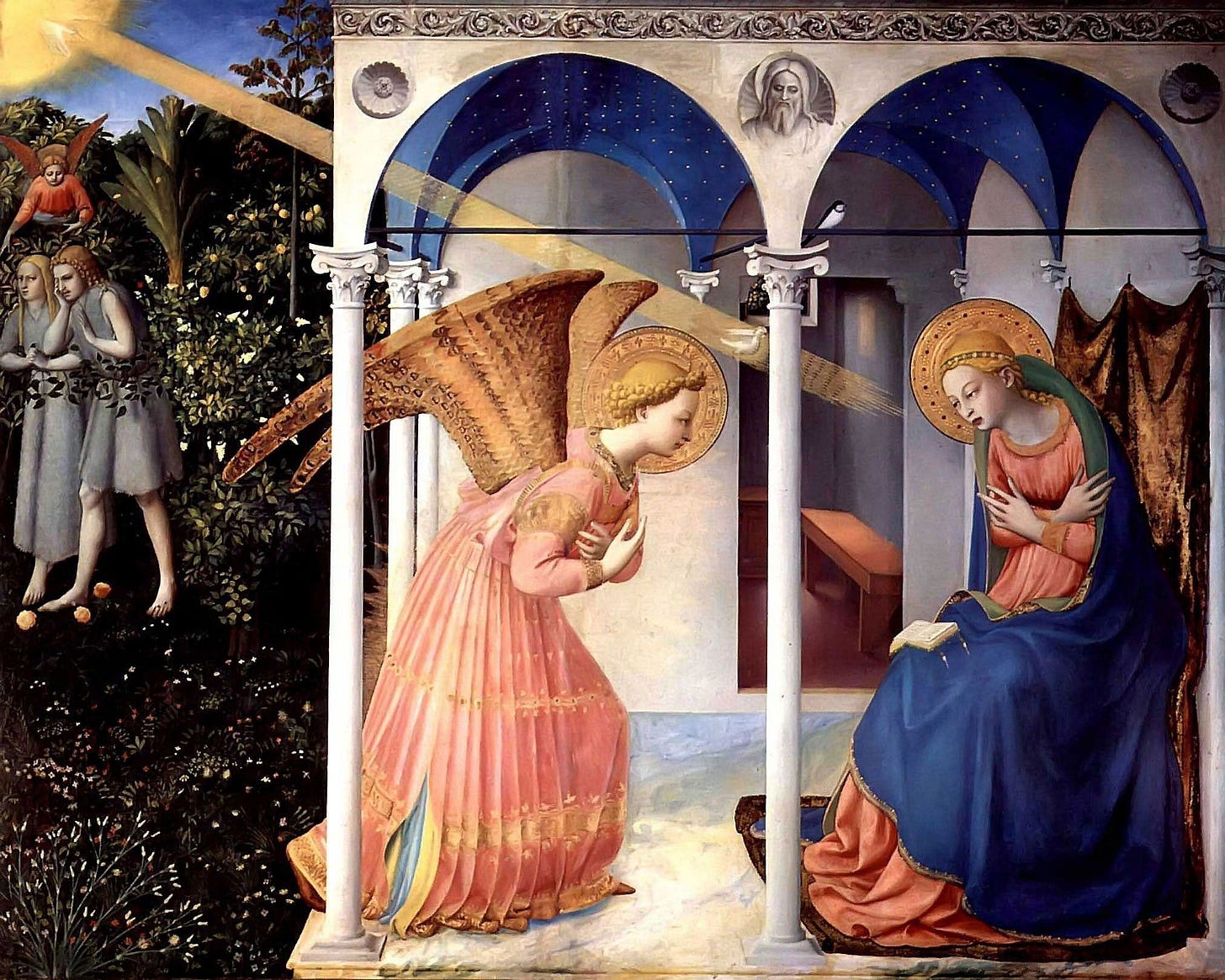One of the most common issues I hear with regard to God and the Faith is questioning where he is when people suffer, or why he doesn’t answer our prayers. We are programmed to imagine that a good God always makes us happy. We think in human, contractual terms about a divine lover. We cannot comprehend the disparity of our worlds.
But we were never promised happiness, which is a fruit, not the motive of Christian life. We don’t pursue happiness, but love.
The conflation of these ideas, of love and happiness, is what generates artificial metrics of success for the Church: subjecting the pursuit of the good to the number of souls we can impact or how many of the hungry we can feed. In other words, it winds up conflating social justice with Christian charity. Similarly, prioritizing making people feel good about Christianity would lead us to back down on revealed truth so as not to ruffle feathers and to make everyone happy, and welcome in the Church. These mistakes are based on the assumption that the signs of a “good” religion are high numbers of pleased members, an absolutely human or worldly metric.
But Jesus told us that, “The poor you will always have with you” (meaning we will not end world poverty or suffering). He told us that the Eucharist really is his body even though many who could not take the teaching would leave him for it. He told us that we would face persecutions in this life but be granted the hundredfold in the next. In short, he taught us that Christianity has a single mandate to which the pursuit of truth, education of children, feeding the hungry, and giving to the poor are all subject. We may organize hospitals, orphanages, charities and be recognized for our institutions, academies, liturgies, or political positions. But they are all secondary. We do good to others because we love. The Annunciation, the divine dwelling among humankind, is the fountainhead the Christian’s universal, infinite capacity to love when God dwells in her.
The Annunciation is the revelation of a hidden God. Born in a cave in Bethlehem, most of his thirty-years on earth are called his “hidden life.” Almost every time he performs a miracle in the Gospels he tells his apostles to keep it to themselves. When Mary Magdalene finds Jesus in the garden she does not recognize him. When he rises from the dead he fills the hearts of the disciples walking to Emmaus, concealing his identity until he leaves them. Jesus spoke the Aramaic of his countrymen, was a carpenter like his father, a Jew like his ancestors, and kept company with the lowliest of tradesmen. If we are to learn only one thing from this feast day, it is the way that God remains hidden even while revealing himself.
God is hidden because he cannot give us reasons to love him.
Jesus doesn’t want to be our medicine man, guru, therapist, representative, or genie. Were he any of these, we would only love for what he gives us, that he takes care of us, and that we feel his love. And I think many people do think in these terms about the Faith, sure that God rewards those that follow him. He may, he may not; he may in this life, he may in the next; he may be doing so but we have no idea because his ways are not our ways.
God is hidden because the Christian life is a school of love, teaching us to love without self-interest. We cannot love God, or anybody, for any reason other than love— or it isn’t love. But if he is our king, we do not earn the good he sends us; if he is our teacher, the good he sends transforms us; if he is our lover, he ceaselessly, unselfishly, invites us to himself. In short, love doesn’t expect to get anything back for loving. This is, of course, the model of the Christian life. That’s why the New Testament goes on about Christians being known only by their love:
You have heard that it was said, ‘You shall love your neighbor and hate your enemy.' But I say to you, Love your enemies and pray for those who persecute you… For if you love those who love you, what reward have you?
When a divine being was conceived in Mary’s womb he challenged the deeply native instinct to love those that are like us, inviting us to love, like he does, without condition. This spirit is the heart of the missionary and cornerstone for forgiveness. Love grants clarity of vision, helping us to articulate truth, be compassionate to others, and welcome the stranger. When we stop looking for God to do what we expect him to do, and instead wonder at his love, we also stop insisting that he cater to us. We start to find that he has been busy all along, when we thought he was neglecting us. Less and less do we insist that he give us what we want, and more and more admire the good he can do in us when we let him. The Christian life is letting the hidden, cosmos-reshaping miracle of the Annunciation occur in each of us, every time we love.
I used to think God’s will was mysterious, and have heard many say the same. Does he want me in this life, with this person, in this job, to live in this house? We work and work to be sensitive to his particular answers rather than disposing ourselves to recognize his presence. “What does love demand?” has become the easiest way to determine any course of action. Suddenly I know how to answer, apologize, to smile, or listen. Barriers, fog, uncertainty fade when we make our purpose single: letting God work inside us.



